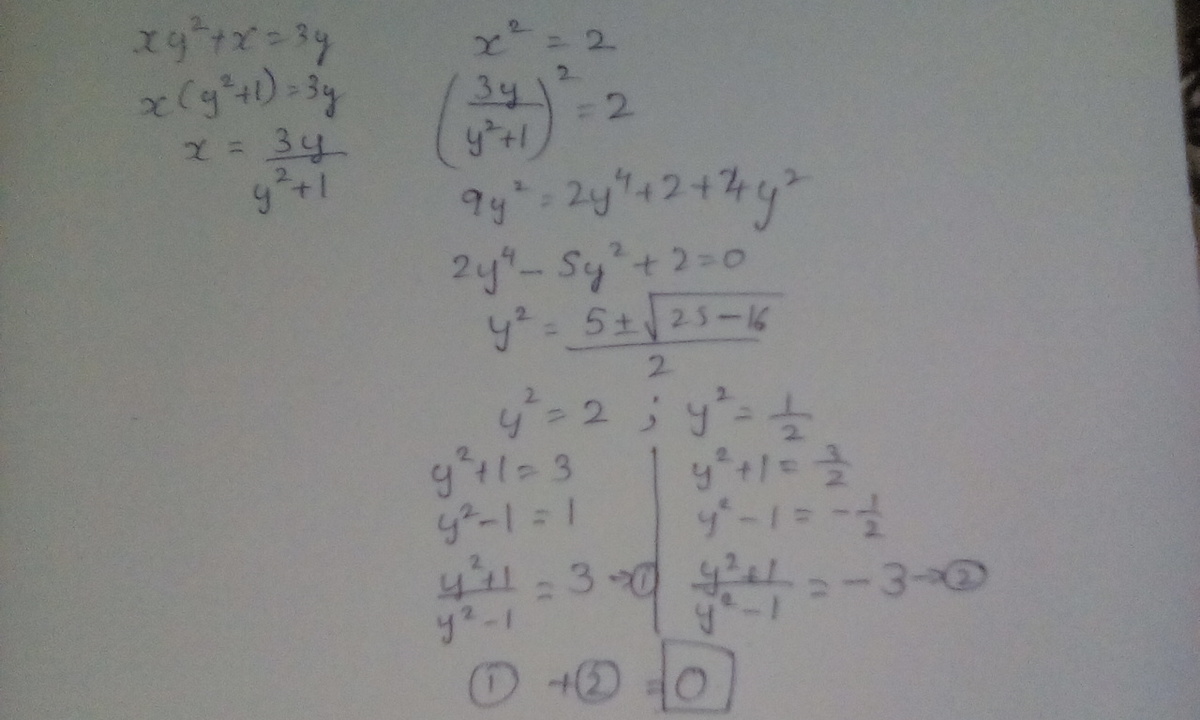and are the friendly enemies
Non-zero real numbers and satisfy the system of equations above. Find the sum of all possible values of .
This is an original problem and belongs to the set My Creations
This section requires Javascript.
You are seeing this because something didn't load right. We suggest you, (a) try
refreshing the page, (b) enabling javascript if it is disabled on your browser and,
finally, (c)
loading the
non-javascript version of this page
. We're sorry about the hassle.

Given x y 2 + x = 3 y
⟹ x y + y x = 3 → ( i ) (dividing throughout by y since y = 0 )
Also x y ( y x ) = 2 → ( i i )
Now, x y and y x are the roots of a quadratic equation whose sum and product of roots are known which are given above as the 2 equations.
Let the QE be in some variable p
Therefore, the QE is p 2 − 3 p + 2 = 0
⟹ ( p − 1 ) ( p − 2 ) = 0
Now the roots are 1 and 2 .
Here, 2 cases are possible.
→ case(i)
x y = 1 and y x = 2
y x x y = 2 1
y 2 = 2 1
Applying Componendo-Dividendo and simplifying, we get
y 2 − 1 y 2 + 1 = − 3
→ case(ii)
x y = 2 and y x = 1
y x x y = 1 2
y 2 = 1 2
Applying Componendo-Dividendo and simplifying, we get
y 2 − 1 y 2 + 1 = 3
Hence the sum of all possible values is − 3 + 3 = 0